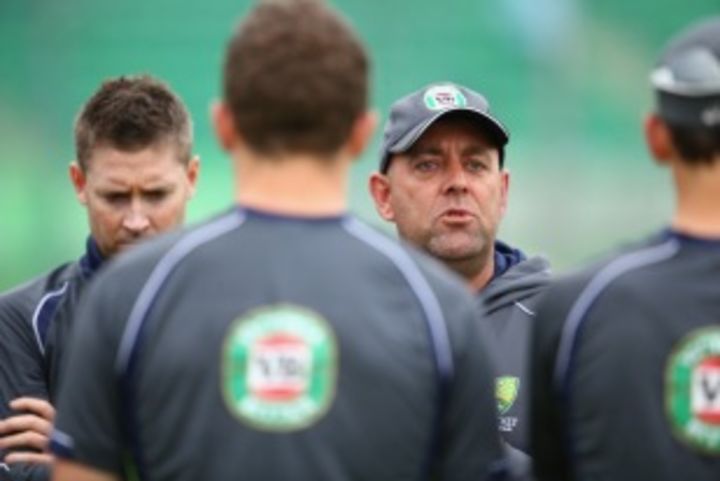Replacing the coach is fine, but what about the batting?
Lehmann can tell his charges not to do England any more favours, but the players have to win games by themselves

First as a player then as captain, I always felt that Australia would receive at least one "favour" from England during an Ashes series. That favour generally came in the form of a strange selection; either the inclusion of an England player who we were happy to play against, or the exclusion of one - John Snow in 1974-75, for instance - that delighted us.
However, in the lead up to this Ashes series, the boot is on the other foot. Australia have "helped" England by way of some poor lead-up results, player suspensions and misbehaviour, and eventually the sacking of coach Mickey Arthur.
Such drastic action so close to an Ashes series could be seen as a panic move but the elevation of Darren Lehmann to the coach's role may be one of few recent decisions emanating from Cricket Australia that actually makes sense.
It had probably reached a stage where Cricket Australia decided the team was going to lose with Arthur in charge, so there was no downside in dumping him on the eve of a crucial series. As an American baseball manager once said to a player who was demanding more money: "We're losing with you, we can sure as hell lose without you."
To understand why this dramatic decision has caused such a furore in Australia and brought unbridled joy to all of England, onlookers need to realise the ferocity of this long-standing rivalry. It's probably best encapsulated in a story concerning one of England's finest captains, and undoubtedly their most controversial, Douglas Jardine.
Jardine, with his hardline but well thought out strategy of utilising Bodyline to restrict the run scoring of Don Bradman, left an indelible mark on the Ashes in 1932-33.
In 1954 a young Peter May was named in the England squad to tour Australia later that year. The following day May entered the Surrey dressing room at The Oval, where an elderly gentleman invited him over. "Son," he began, "I believe you've just been chosen to tour Australia."
"Yes sir," May replied proudly, "I'm hoping to do well and represent my country with honour."
"Don't worry about that," the older man exploded, "just beat the ***kers."
The elderly gentleman was none other than Jardine.
The spirit of those words still reverberate in England, and hence the joyful sniggering as Australia lurch from one crisis to another.
While Lehmann will immediately command the players' respect and has already brought some much-needed common sense to the squad with his decision to open with Shane Watson, the coach doesn't make any runs or take any wickets. Michael Clarke and his team are the only ones who can turn around their recent fortunes and, with an improved performance, give Australian fans hope that the Ashes series is not a lost cause.
Many a player has felt positive and strong sitting in a hotel lounge, listening to a rousing speech. The problem comes the next day when, under intense scrutiny, he actually has to find a way to score runs against the swing of a Jimmy Anderson and the guile of a Graeme Swann. Even a confidence-boosting net session isn't the complete answer. It's only when a player actually gets out in the middle and scores runs against Anderson and Swann that he finally feels comfortable in his own mind that success is a possibility.
What has sustained Australian hopes throughout this rough patch has been the confidence inspired by a strong pace attack. This is not unrealistic, because putting together a viable attack - one capable of taking 20 wickets economically - is the toughest task in cricket.
However, no matter the strength of the Australian attack, they can't conjure up victory without considerable help from the batsmen. That's where the big improvement must come from.
Despite the good cricketing sense behind the change to Lehmann, he can't help the players once they are in the middle. About the best words he can offer the team as they leave the dressing room are either a choice of Jardine's refrain, or "Don't do the opposition any favours."
Former Australia captain Ian Chappell is now a cricket commentator for Channel 9, and a columnist
Read in App
Elevate your reading experience on ESPNcricinfo App.